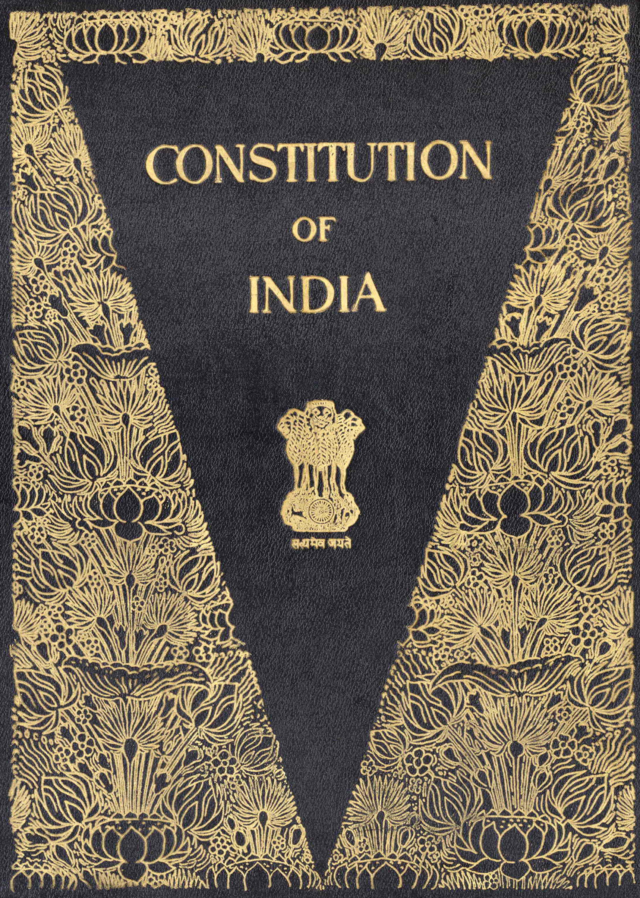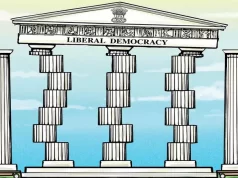Jawaharlal Nehru played a luminous role in planting the Kalpavriksha of constitutionalism in India, but by steering the First Amendment, he cut the very taproot of it.
We must respect the judiciary, the Supreme Court and the other High Courts in the land. As wise people, it is their duty to see that in a moment of passion, in a moment of excitement; even the representatives of the people do not go wrong. In the detached atmosphere of the courts, they should see to it that nothing is done that may be against the Constitution.
-Jawaharlal Nehru solemnly stated in the Constituent Assembly on 10 September 1949. (Quoted in Nehru and Indian Constitutionalism edited by N.R.Madhava Menon published by Indus Source Books -2015))
This statement underscored Nehru’s unalloyed commitment to the nascent Indian constitutionalism. Nehru was a towering presence amongst the founders of our Constitution. He contributed richly to its framing. In 1931, he moved a Resolution in the Karachi session of the Congress that demanded the freedom of speech and press.
But the same Nehru ironically subverted the vital spirit of constitutionalism by piloting the Constitution (First Amendment) Act in 1951 to invalidate the judgments delivered by India’s constitutional courts in the very honeymoon days of constitutional order. Thus, Nehru, along with Dr Ambedkar and C Rajagopalachari, became both the makers and the breakers of India’s Constitutional aspiration.
The uphill task
A constitution is a social contract entered into by the people of a territory with a State that exercises sovereignty over the territory. The social contract of the Constitution defines and limits the governmental powers of the State and delineates, proclaims, and safeguards the fundamental rights of the citizenry. People’s obedience towards the State and the State’s assurance of fundamental rights constitute the quid pro quo for the social contract. This idea of social contract is the gist of constitutionalism.
A constitution not revitalised by constitutionalism is only an ‘empty shell constitution’. The separation of powers and checks and balances function as a protective mechanism of constitutionalism, which is anchored at the supremacy of the Constitution. Constitutionalism demands an independent judiciary with powers of judicial review. Jawaharlal Nehru played a luminous role in planting the Kalpavriksha of constitutionalism in India, but by steering the First Amendment, he cut the very taproot of it!
Jawaharlal Nehru successfully navigated the Objective Resolution, the kernel of the Constitution, through the Constituent Assembly. The Resolution, moved on 13 December 1946 and passed on 22 January 1947, set the basic algorithm of India’s Constitution making. The Resolution underscored the principle of popular sovereignty and guaranteed justice, equality, and freedom of thought and expression for the citizenry. ‘It is a very vital resolution[,] and it lays down the essentials of the next constitution’,- observed MR Jayakar, a member of the Constituent Assembly. (Quoted in Sixteen Stormy Days: The Story of the First Amendment to the Constitution of India by Tripurdaman Singh ,Penguin Random House 2020.)
Rolling the Constitution down
Judicial review is a cardinal principle of constitutionalism. However, Jawaharlal Nehru circumvented the unsavoury judgments of the constitutional courts through the constitutional amendment. As the judiciary steadfastly upheld the civil liberties enshrined in the Fundamental Rights, Nehru successfully moved the First Amendment (1951), creating a perilous constitutional architecture for authoritarian government. He upset the Constitutional apple cart merely within sixteen months of its making!
Prof Upendra Baxi called the First Amendment the ‘Nehruvian Constitution’, a radical rewriting of the constitution’s Fundamental Rights Charter. The Fundamental Rights were effectively disregarded and the Constitutional social contract was violated. The Constitution was made subservient to the will of the government of the day. The constitutional groundwork was done for a host of repressive legislation to follow. The judiciary, ‘guardian of the people’s liberties’, was emasculated, and the newly introduced the Ninth Schedule curtailed the judicial review.
The Cross Roads, a magazine edited by Romesh Thapar, was staunchly critical of the Congress governments. The Madras government banned the magazine’s circulation in the State on 1 March 1950 under the Madras Maintenance of Public Order Act, which was also banned in Bombay in 1949. Meanwhile, the Organizer, edited by K.R. Malkani, assaulted Nehru’s Pakistan policy and argued that ‘the villainity of Pakistan is matched only by our own idiocy’. The Delhi government issued a pre-censorship order against the Organizer under the East Punjab Public Safety Act, demanding the editor to submit to the government for approval of all communal matters, news, and opinions about Pakistan. Following these incidents, the Cross Roads and the Organizer approached the Supreme Court to regain their constitutional right of free speech.
The Supreme Court quashed the order banning the Cross Roads in Madras, and the relevant provisions of the Madras Maintenance of Public Order Act were held ultra vires. Similarly, in the Organizer case, the pre-censorship order and relevant section of the Act were held to be repugnant to the Constitution. The court held that laws could impose restrictions on free speech only based on Clause 2 of Article 19: libel, slander, defamation, contempt of court or undermining the security of the State and any other reason, including public order, was held unacceptable. In Tara Singh v. State of Punjab (1951), the Punjab High Court held that Section 124 A of the IPC (sedition) contravened the right to freedom of speech and was thus unconstitutional.
Nehru’s authoritarian avatar
Nehru made his stand clear for the Constitutional Amendment for bypassing the Court verdicts. He wrote to the Chief Ministers on 31 December 1950:
“We have to make clear that no individual in India, whoever he may be, can challenge the authority of the State or of Parliament…so far as we are concerned, we are not going to tolerate any defiance of the State’s authority. “
It was an authoritarian statement which dimmed Nehru’s democratic halo.
Jawaharlal Nehru introduced the Constitution (First Amendment) Bill in Parliament on 12 May 1951, which was referred to a Select Committee. In the committee, Dr Shyama Prasad Mookerji said that democratic freedom implied that any viewpoint could circulate in the country so long as it did not advocate violence and chaos. HN Kunzru opined that Articles 19 and 31 were not being amended; they were effectively being repealed, and if passed, the new article would extinguish freedom of speech and expression almost entirely. He pointed out the dangers of amendment: the revalidation of sedition and revival of censorship.
The Amendment Bill was passed with an overwhelming majority of 228 ayes against 20 noes. New grounds for restricting free speech were introduced- interests of security of the State, friendly relations with foreign states, and public order. As Hussain Imam put it, the amendment laid the foundation of an authoritarian state. As Justice Hidayatullah pointed out, fundamental rights became a plaything of parliamentary majorities. President Rajendra Prasad sagaciously stated:
Part III of the Constitution[,] which lays down the Fundamental Rights[,] has a special importance and significance of its own…it is an irony of fate that this Part[,] which stands above every other Part of the Constitution[,] is the first to be assailed.
Nehru ploughed the tough terrain for constitutionalism but, advertently or inadvertently, sowed the dragon’s teeth of authoritarianism in India’s marshy land. He was Prometheus who brought the fire of constitutionalism down to India but took a Sisyphean turn by pressing the First Amendment.
Read more: Addressing the Urban Nutritional Challenges in ICDS
Post Disclaimer
The opinions expressed in this essay are those of the authors. They do not purport to reflect the opinions or views of CCS.






